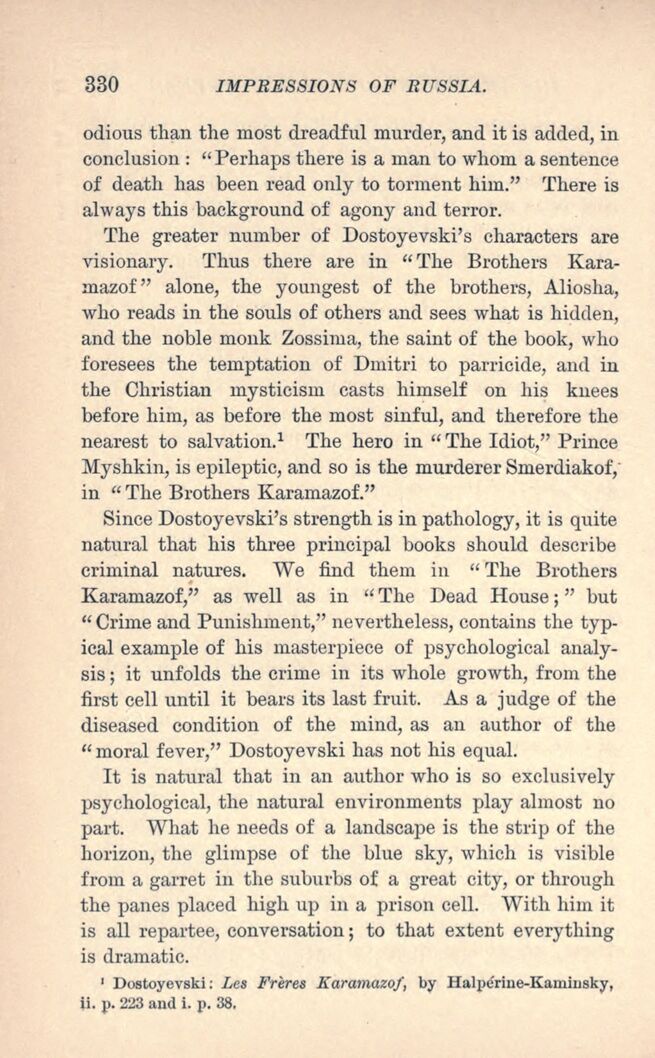
Full resolution (JPEG) - On this page / på denna sida - Impressions of Russian Literature - VI

<< prev. page << föreg. sida << >> nästa sida >> next page >>
Below is the raw OCR text
from the above scanned image.
Do you see an error? Proofread the page now!
Här nedan syns maskintolkade texten från faksimilbilden ovan.
Ser du något fel? Korrekturläs sidan nu!
This page has been proofread at least once.
(diff)
(history)
Denna sida har korrekturlästs minst en gång.
(skillnad)
(historik)
odious than the most dreadful murder, and it is added, in
conclusion: “Perhaps there is a man to whom a sentence
of death has been read only to torment him.” There is
always this background of agony and terror.
The greater number of Dostoyevski’s characters are
visionary. Thus there are in “The Brothers Karamazof”
alone, the youngest of the brothers, Aliosha,
who reads in the souls of others and sees what is hidden,
and the noble monk Zossima, the saint of the book, who
foresees the temptation of Dmitri to parricide, and in
the Christian mysticism casts himself on his knees
before him, as before the most sinful, and therefore the
nearest to salvation.[1] The hero in “The Idiot,” Prince
Myshkin, is epileptic, and so is the murderer Smerdiakof,
in “The Brothers Karamazof.”
Since Dostoyevski’s strength is in pathology, it is quite
natural that his three principal books should describe
criminal natures. We find them in “The Brothers
Karamazof,” as well as in “The Dead House;” but
“Crime and Punishment,” nevertheless, contains the
typical example of his masterpiece of psychological
analysis; it unfolds the crime in its whole growth, from the
first cell until it bears its last fruit. As a judge of the
diseased condition of the mind, as an author of the
“moral fever,” Dostoyevski has not his equal.
It is natural that in an author who is so exclusively
psychological, the natural environments play almost no
part. What he needs of a landscape is the strip of the
horizon, the glimpse of the blue sky, which is visible
from a garret in the suburbs of a great city, or through
the panes placed high up in a prison cell. With him it
is all repartee, conversation; to that extent everything
is dramatic.
<< prev. page << föreg. sida << >> nästa sida >> next page >>